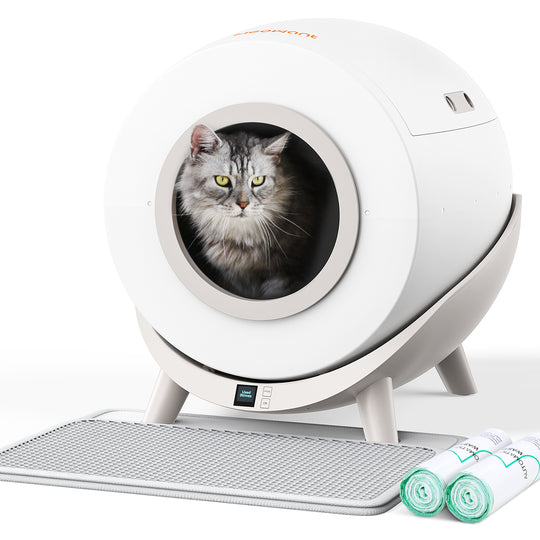When it comes to providing a comfortable and hygienic environment for your feline friend, selecting the best litter box is crucial. With a myriad of options available, how do you determine which one suits your cat's needs? This guide will help you navigate through the choices, ensuring you find the perfect fit for your furry companion.

Understanding Different Types of Litter Boxes
The first step in choosing the best litter box is understanding the various types available. Here are some common categories:
- Open Litter Boxes: These are traditional boxes without a cover, making them easy for cats to access.
- Covered Litter Boxes: Featuring a lid, these boxes provide privacy for your cat while containing odors.
- Self-Cleaning Litter Boxes: These high-tech options automatically scoop waste, reducing the frequency of manual cleaning.
- Disposable Litter Boxes: Made from recyclable materials, these boxes can be thrown away after use, offering convenience.
Key Features to Consider
Once you have a grasp of the types, consider the following features to ensure you select the best litter box for your cat:
- Size: The box should be large enough for your cat to turn around comfortably. A good rule of thumb is that the box should be at least one and a half times the length of your cat.
- Height: If you have an older cat or one with mobility issues, a lower entry point may be necessary.
- Material: Look for durable materials that are easy to clean. Plastic is common, but some boxes are made from more eco-friendly options.
- Odor Control: Consider boxes with built-in odor control features, such as carbon filters or special coatings.
Tips for Transitioning to a New Litter Box
Transitioning your cat to a new litter box can be a delicate process. Here are some tips to make it smoother:
- Introduce the new box gradually by placing it next to the old one.
- Use the same type of litter to avoid confusion.
- Encourage your cat to explore the new box by placing treats nearby.
Maintaining Your Litter Box
Even the best litter box requires regular maintenance. Cleaning the box daily and replacing the litter weekly will help keep odors at bay and ensure your cat remains happy and healthy. If you notice any changes in your cat's bathroom habits, consult your veterinarian, as this could indicate health issues.
In conclusion, selecting the best litter box for your cat involves understanding the various types, considering essential features, and ensuring proper maintenance. By following this guide, you can create a comfortable and inviting space for your beloved pet.








